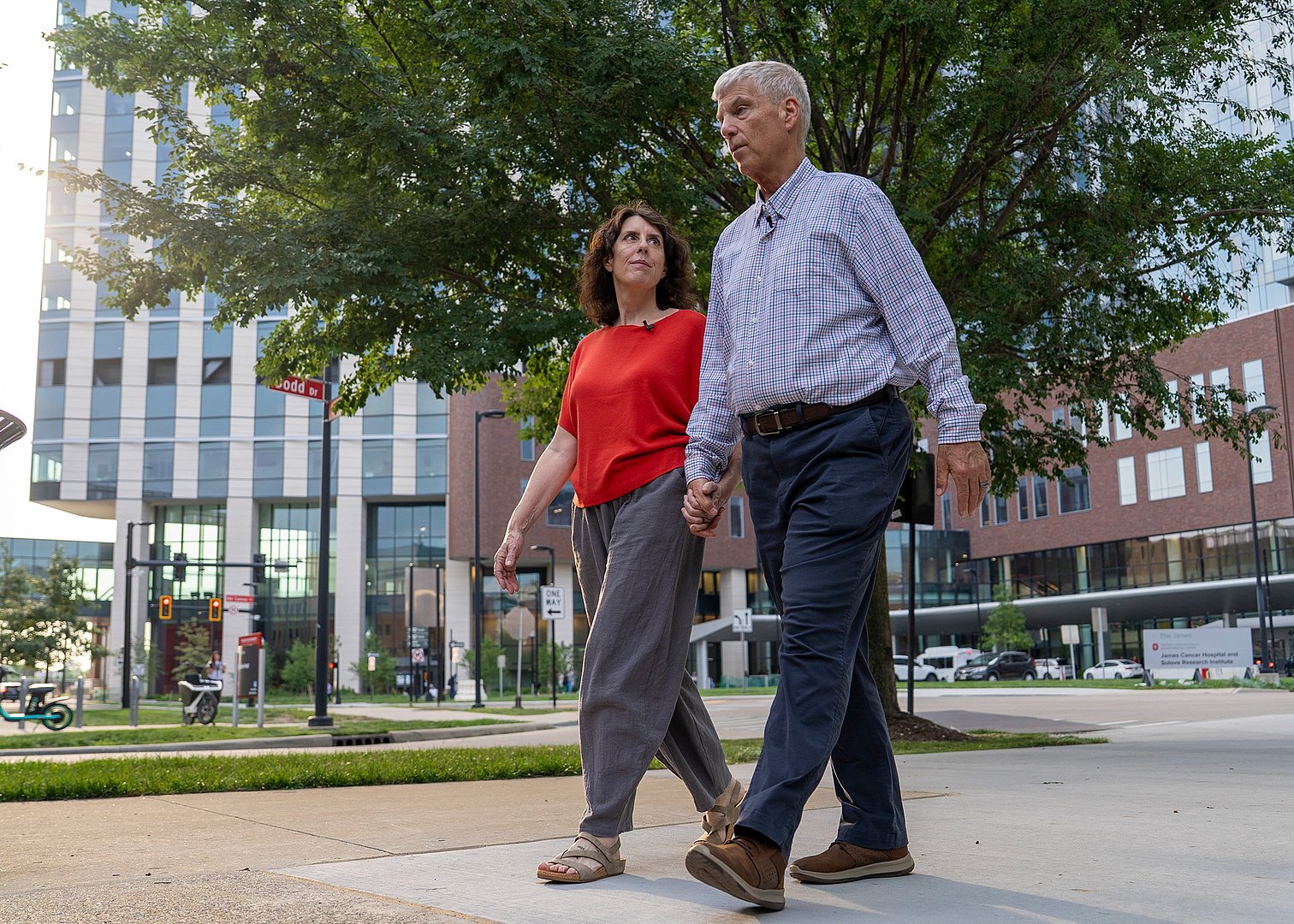Get Healthy!

- Posted September 2, 2025
Most Don't Know Prostate Cancer Can Be a Silent Killer, Poll Finds
Too often, American men and their loved ones mistakenly believe that prostate cancers must always present with symptoms, a new poll shows.
Of the people polled, 4 out of 5 people (80%) did not know that the early-stage prostate cancer often arises in the absence of symptoms and is typically only diagnosed with a blood test.
The findings highlight the need for better education and screening, said Dr. Edmund Folefac, a medical oncologist at the Ohio State University Comprehensive Cancer Center in Columbus.
The common cancer "begins in the prostate gland and in its early stages, [and] often doesn’t cause noticeable symptoms, which is why regular screening is so important,” Folefac said.
The good news: “Because prostate cancer tends to progress slowly, if caught early, it is very treatable," he said in a cancer center news release.
Ohio State Cancer Center patient Daryl Wilber and his wife, Jodi, were caught unaware when a blood test revealed Daryl had early-stage prostate cancer.
Jodi now believes that it's imperative that men's partners advocate for regular screening.
"Help them get over that hump from going from 'Yeah, yeah, yeah, I know I should do it' to, 'OK, I'm going to go tomorrow and do it,' " she said.
The new nationwide poll was conducted in early August and involved over 1,000 adults contacted via the internet or phone.
The American Cancer Society projects that almost 314,000 men in the U.S. will battle prostate cancer in 2025, and nearly 36,000 will die from the disease. It typically arises in men over 50, but early detection can bring high odds for survival.
Getting screened is crucial, however, and too many men polled were misled about the symptoms of the illness.
Current guidelines recommend that men begin getting screened for prostate cancer at the age of 50.
Only 20% of of those polled understood that early-stage disease often has no symptoms.
More than half (59%) of respondents also did not know that sexual dysfunction can be a sign of prostate cancer.
Race appeared to matter, with Black Americans having a better grasp of certain common symptoms than members of other racial/ethnic groups.
For example, while 33% of Black adults identified fatigue as a potential symptom, that was true for only 24% of white adults, the poll found.
Likewise, 30% of Black adults identified weight loss as a potential symptom versus 20% of white adults.
On the other hand, fewer Black adults were aware that prostate cancer can have no symptoms compared to white adults (12% and 21%, respectively), the poll found.
One key clue to look for to assess a man's risk: family history.
“Knowing your family history is very important,” said Folefac, who is also a clinical associate professor at Ohio State College of Medicine. “If your father, brother or grandfather was diagnosed with prostate cancer, you have a higher risk of getting the disease and you should start screenings early and regularly.”
The margin of error in the new poll is plus or minus 3.5 percentage points.
More information
Find out more about prostate cancer screening at the Mayo Clinic.
SOURCE: Ohio State University Wexner Medical Center, news release, Aug. 28, 2025

